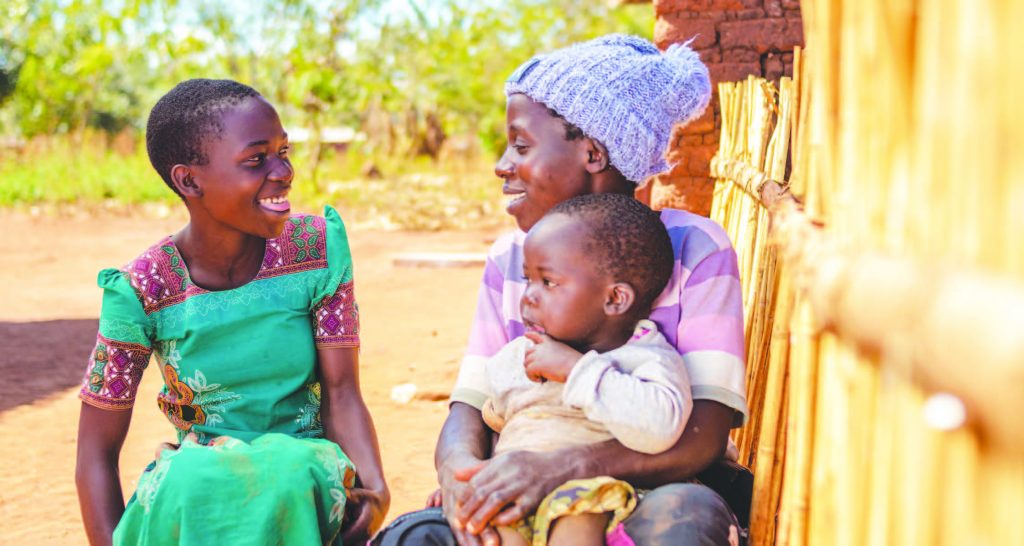Mobile lessons ease access to health care
In most rural parts of Malawi, sick villagers have to walk several kilometres to the nearest hospital, in the process reducing their chances of survival.
But, mostly, their bigger threat to health is the reluctance to seek medical care, even in the direst of cases.

Nyuma Mpanje lives in Mchonjo Village just under five kilometres from Ntchisi District Hospital. Yet, for the longest time, healthcare was an alien concept for her.
The mother of four, aged between 12 and two, had no regard for healthcare, let alone life-saving vaccinations for her children.
But things took a turn when community health volunteer Richard Mandala took her through basic health problems.
“This opened my eyes to the importance of healthcare, especially for under-five children. Previously, I used to be ignorant on child healthcare. But, with the help from the health community volunteer, I now know how to care for my children, especially when it comes to malaria which used to trouble us every time,” she says.
Mandala is among 1 650 community health volunteers in Ntchisi that have been trained and equipped with skills by Amref Health Africa to attend to malaria, diarrhoea and pneumonia—the top three causes of death among under-five children in Malawi. The non-profit organisation equipped the volunteers with mobile phones through which they receive training modules and get examined at the end of each.
“Before I started the training, I was blank on key health issues but I have now learnt a lot about child healthcare and how to avoid diseases that pose a threat to child healthcare,” explains Mandala.
He notes that the intervention has helped reduce child deaths as, people now understand the need for speed in seeking medical care.
“People were relaxed and, in some cases, even reluctant when it came to seeking medical care for their children which led to needless and avoidable deaths among young children,” he says.
The intervention employs appropriate mobile learning methods to train from any basic phone.
According to Amref’s head of programme planning and monitoring Madalitso Tolani, this ease enables everyone to learn at their own pace from wherever they are.
“The volunteers receive mobile phones through which they receive lessons to be completed within six weeks after which they are assessed for competence,” he says.
The modules were developed in association with the Ministry of Health.
Tolani says the programme has led to cohesive partnerships between the health surveillance assistants (HSAs) and the community health volunteers.
“The volunteers do a lot of work due to the low number of HSAs in the communities,” he says.
Tolani terms the community health volunteers critical players in the health ecosystem, although most of them are untrained.
“This is why this programme is aimed at training the health workers in our communities so that they have the requisite skills to enable them to execute their work,” he says.”
Fanny Jekapu, an HSA at Nkhudzi Health Centre in the district, supervises 15 community health volunteers. She says the volunteers are helpful as they also go deep into the communities to educate people on health issues, enlightening communities on the need to seek medical attention immediately.
She says: “Previously, people would take several days before they sought medical care for their sick children but nowadays, they bring them to the clinic as soon as they notice signs of sickness.
“As a result, there has been a significant reduction in child deaths because people now seek medical attention quicker than they used to, thereby reducing the risk for death. We have evidence because we report chid deaths every month and over the past months, we have been recording zero child deaths.”
Traditional Authority Kasakula is excited with a “remarkable change in health uptake” in his area.
The chief explains: “We have very few HSAs in the area so the coming in of these community health volunteers has helped fill that vacuum.
“I can proudly say that over the past year, at Kangolo Health Centre, we had few child deaths, less than five. And this is low compared to the previous years and I attribute this to the work that is being done by these health volunteers.”
His sentiments are echoed by Dr Lumbani Munthali, the district’s director of health and social services
“This programme has improved a lot of health indicators in the district. In terms of child mortality, Nchisi is now at 50 deaths per 1 000 live births which is way below the national level of 63 deaths per 1 000 live births,” he says.






One Comment